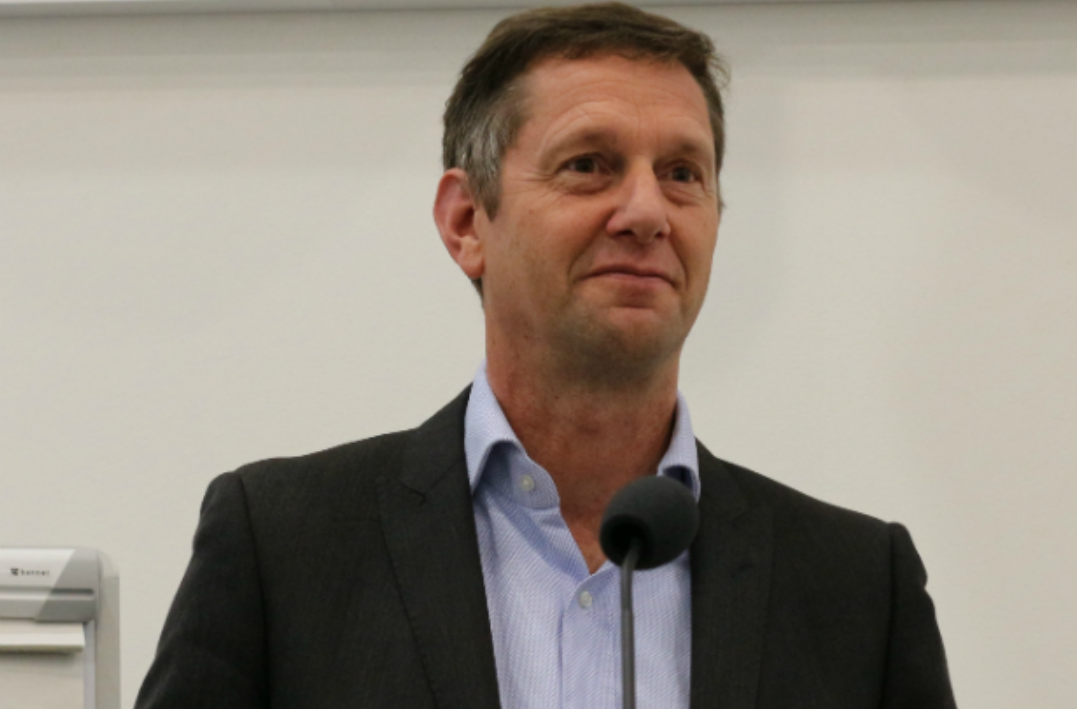Thirty-eight emails released after a recent FOI request provide an interesting insight into the way Government science advisers plotted to change Boris Johnson’s mind over the causes of climate change ahead of a Cabinet Office presentation.
The event on January 28th 2020 was led by the Government’s Chief Scientific Officer Sir Patrick Vallance and presented, using 11 slides, by the Chief Scientist of the Met Office, Professor Stephen Belcher. According to Belcher, the stated goal of the presentation was to persuade Boris that to “stabilise climate” we need “net zero emissions”.
On the day of the meeting, one of the attendees, Richard Barker, the Head of Energy and Environment at the National Physical Laboratory, circulated an email noting that a picture was to be painted about the current climate situation and some of the challenges “we” face, adding: “However, my assumption is that we want this meeting to establish the big opportunity for us to take a big step forward.”
The big step forward probably referred to surgically removing any scepticism that the Prime Minister had shown in the past about the role humans have played in causing the climate to change. Since then, Johnson has said that the briefings he received around this time provided a “road to Damascus” style conversion in him. At COP26 last year, he told delegates it was “one minute to midnight” on the doomsday clock. At the UN a month before, he told humanity to “grow up“. Any doubts he might have had about what he was told by selected scientists about climate change during his premiership seem to have disappeared since he intriguingly added: “It is time for us to listen to the warnings of the scientists – and look at Covid, if you want an example of gloomy scientists being proved right.”
And thanks to the FOI request, we now know that certain gloomy scientists were busy planning in January 2020 to get Johnson on board the Net Zero agenda. A day before the meeting, an email from Sir Patrick Vallance homed in on one of the issues that leads many to argue that the causes of climate change are not fully understood. “Should we be worried that the range of climate sensitivities hasn’t changed?” he asked. This is a reference to the elephant-in-the-room problem at the heart of climate models – equilibrium climate sensitivity. This is the increase in the global mean surface temperature that follows a doubling of atmospheric CO2. The problem is that nobody knows what this increase is – the science for this crucial piece of the jigsaw is missing – unsettled, you might say. The range of sensitivities hasn’t changed in over 40 years. Some scientists argue that CO2 loses much of its warming properties as more enters the atmosphere and the increase could be as low as 0.5°C. Some models, however, guess as high as 6°C.
Last year, Professor Nicola Scafetta from the University of Naples analysed 38 of the main climate models and found that most of them had overestimated global warming over the last 40 years. Many of them should be “dismissed and not used by policymakers”, he said. In 2019, 48 Italian science professors led by nuclear antimatter discoverer Antonino Zichichi said in an open letter to the Italian Government that catastrophic predictions of climate models were “not realistic”. In their view, all the facts suggested that the models overestimated the human contribution to climate change and underestimated the natural climatic variability, especially that induced by the sun, the moon and by the oceanic oscillations.
In a further email, Vallance suggested to Belcher that Boris would want an answer to the question “why are the numbers so round, e.g. 2050 targets and 1.5°C etc.”. No doubt forewarned was forearmed and convincing answers were provided, despite neither targets having any basis in scientific fact. However, much of the recent media comment on the meeting has been of the ‘why are we still having to do this’ variety. “It is shocking he had his Damascene moment in 2020 given how much effort scientists have made to communicate the risks of climate change over the years,” said Emily Shuckburgh, Head of Cambridge Net Zero, the university’s climate change initiative. Professor Stefan Rahmstorf of the Potsdam Institute for Climate Impact Research tweeted that the slides showed “elementary climate info”, adding: “One would have hoped that this is basic knowledge of every politician since decades on the planet and doesn’t have to be shown in 2020! Alas…”
Interestingly, it was the founding director of the Potsdam Institute who is credited with first putting an arbitrary target ceiling on the rise in global temperatures. IPCC lead author Hans Joachim Schellnhuber is said to be the father of 2°C, an earlier IPCC target. Asked in 2010 by the German Der Speigel newspaper why he had imposed the “magical limit”, he replied: “Politicians like to have clear targets and a simple number is easier to handle.”











To join in with the discussion please make a donation to The Daily Sceptic.
Profanity and abuse will be removed and may lead to a permanent ban.